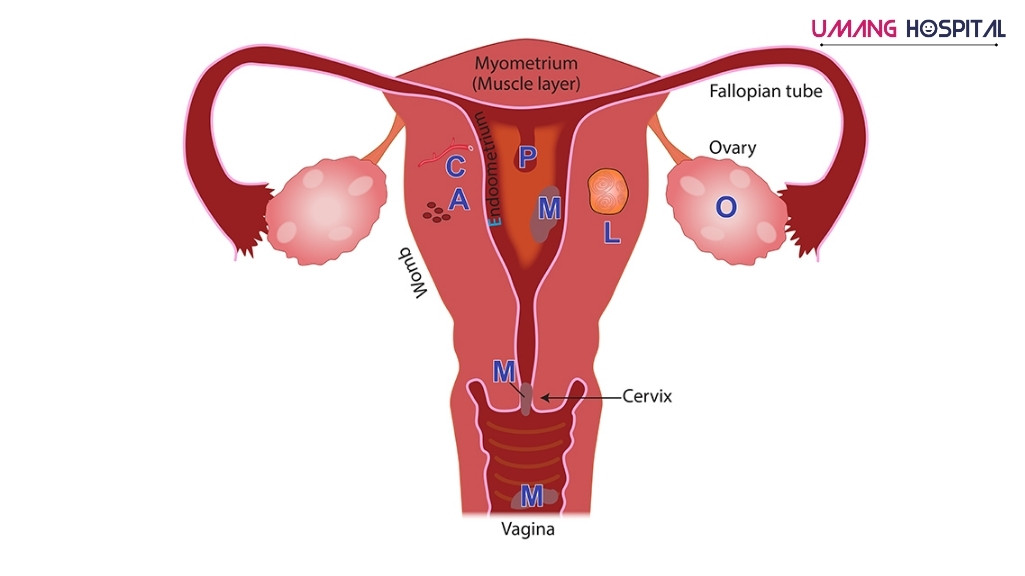
MENSTRUAL DISORDERS
Menstrual disorders include a wide range of conditions that cause alteration in a woman's normal menstrual cycle pattern. These disorders can manifest as heavy or prolonged bleeding, missed periods,delayed menses, frequent menses, scanty bleeding, irregular menses or painful periods. The causes may include various factors like hormonal imbalances, structural abnormalities in the uterus, or underlying medical conditions. Treatment options vary depending on the specific disorder and can include medication, hormone therapy, or in some cases, surgery.
Types of Menstrual Disorders:
Abnormal Uterine Bleeding: This encompasses both excessive menstrual bleeding (menorrhagia) and prolonged bleeding (more than 8 days).
Amenorrhea: This refers to the absence of menstruation, either primary (never starting) or secondary (stopping after previously having periods).
Oligomenorrhea: This involves infrequent menstruation, with cycles longer than usual.
Polymenorrhoea: this involves early menses with a cycle duration of less than 21 days.
Dysmenorrhea: This condition causes painful periods, often with severe cramps.
Premenstrual Syndrome (PMS) and Premenstrual Dysphoric Disorder (PMDD): PMS involves physical and emotional symptoms before menstruation, while PMDD is a more severe form with significant functional impairment.
Fibroids: These are noncancerous growths in the uterus that can cause heavy bleeding and pain.
Endometriosis: A condition where tissue similar to the uterine lining grows outside the uterus, causing pain and irregular bleeding.
Polycystic Ovary Syndrome (PCOS): A hormonal disorder that can lead to irregular periods, ovarian cysts, and hair and skin issues.
Causes of Menstrual Disorders:
Hormonal Imbalances: Fluctuations in estrogen and progesterone levels are a common cause.
Structural Abnormalities: Conditions like fibroids, polyps,adhesions, endometrial hyperplasia,infections or endometriosis can disrupt the menstrual cycle.
Medical Conditions: Certain health issues like thyroid diseases, bleeding disorders,hypertension, diabetes or other chronic medical diseases can affect menstruation.
Medications: Some medications, like blood thinners or certain hormones, can also cause irregularities.
Lifestyle Factors: Stress, lack of sleep, unhealthy eating habits, lack of exercise can also play a role.
Symptoms:
Heavy or prolonged bleeding: Soaking through a pad or tampon every 2-3 hours or bleeding for more than 8 days.
Painful periods: Severe cramps, back pain, or other discomfort.
Missed periods or irregular cycles: Cycles longer or shorter than usual, or periods that stop altogether.
Other symptoms: Fatigue, mood swings, bloating, breast tenderness, headaches, etc.
Treatment:
Medications:
Pain relievers, hormonal birth control, iron supplements (for anemia), and other medications can be used.
Hormone Therapy:
This can help regulate the menstrual cycle and manage symptoms.
Surgery:
Hysteroscopy is a minimal invasive procedure where a small flexible scope with attached camera is introduced in the uterus via the vaginal route and the diseases of the uterus are diagnosed. Operative hysteroscopy helps in removal of polyp , fibroids, adhesions, misplaced cu T, excision of septa etc via the vaginal route.In some cases, surgical procedures like hysterectomy (removal of the uterus) or myomectomy (removal of fibroids) may be necessary.
Lifestyle Adjustments:
Balanced diet, regular exercise, stress management, and other lifestyle changes can also be helpful.
When to See a Doctor
If you experience any unusual or severe symptoms related to your periods, it's important to consult with a healthcare professional.
If your periods are consistently heavy, painful, or irregular, it's a good idea to seek medical advice with our expert.
If you have any concerns about your menstrual health, don't hesitate to book your consultation and talk to our expert clinical team at the earliest .